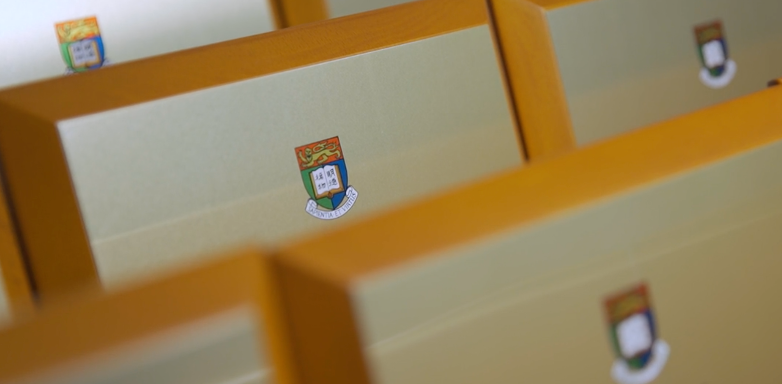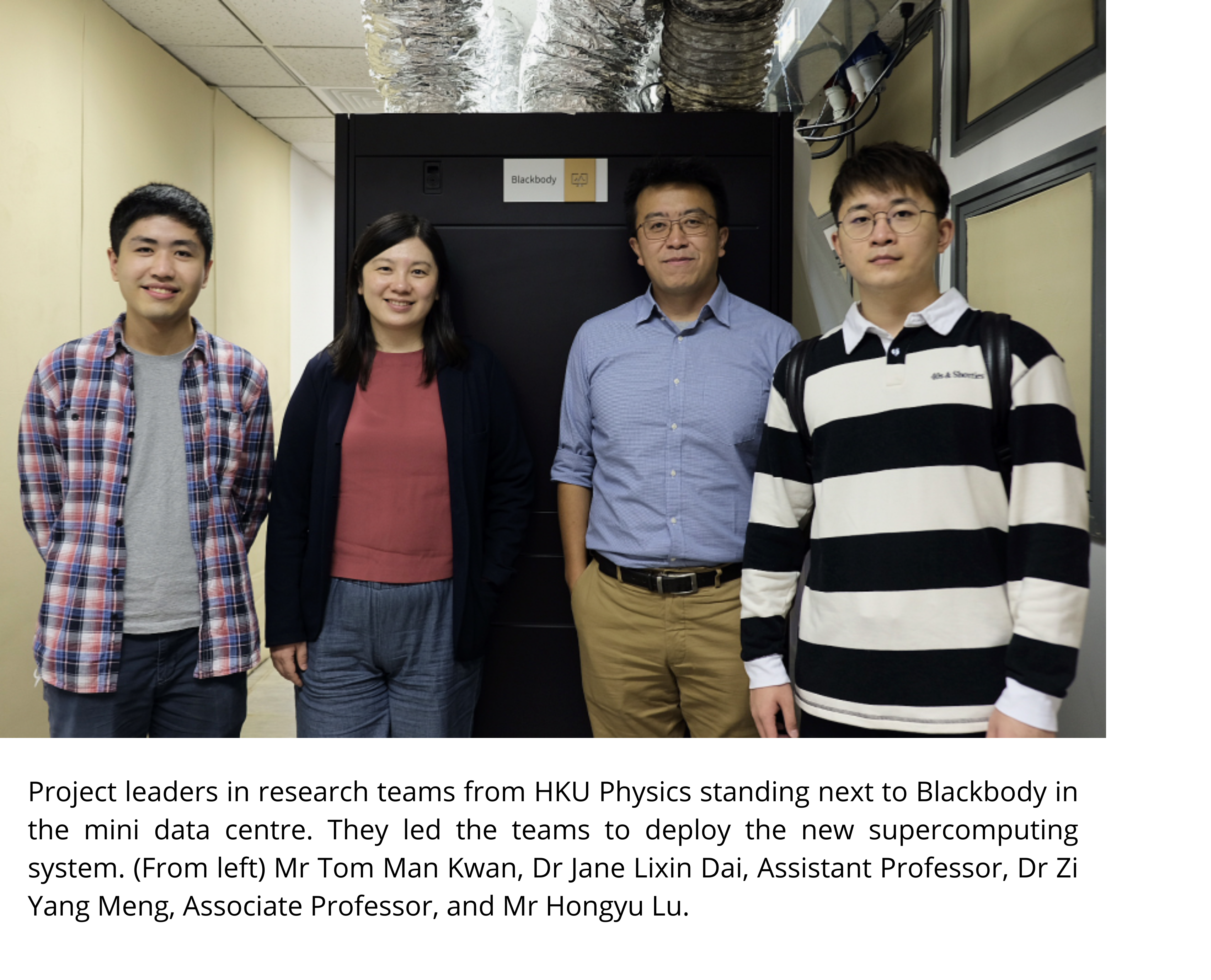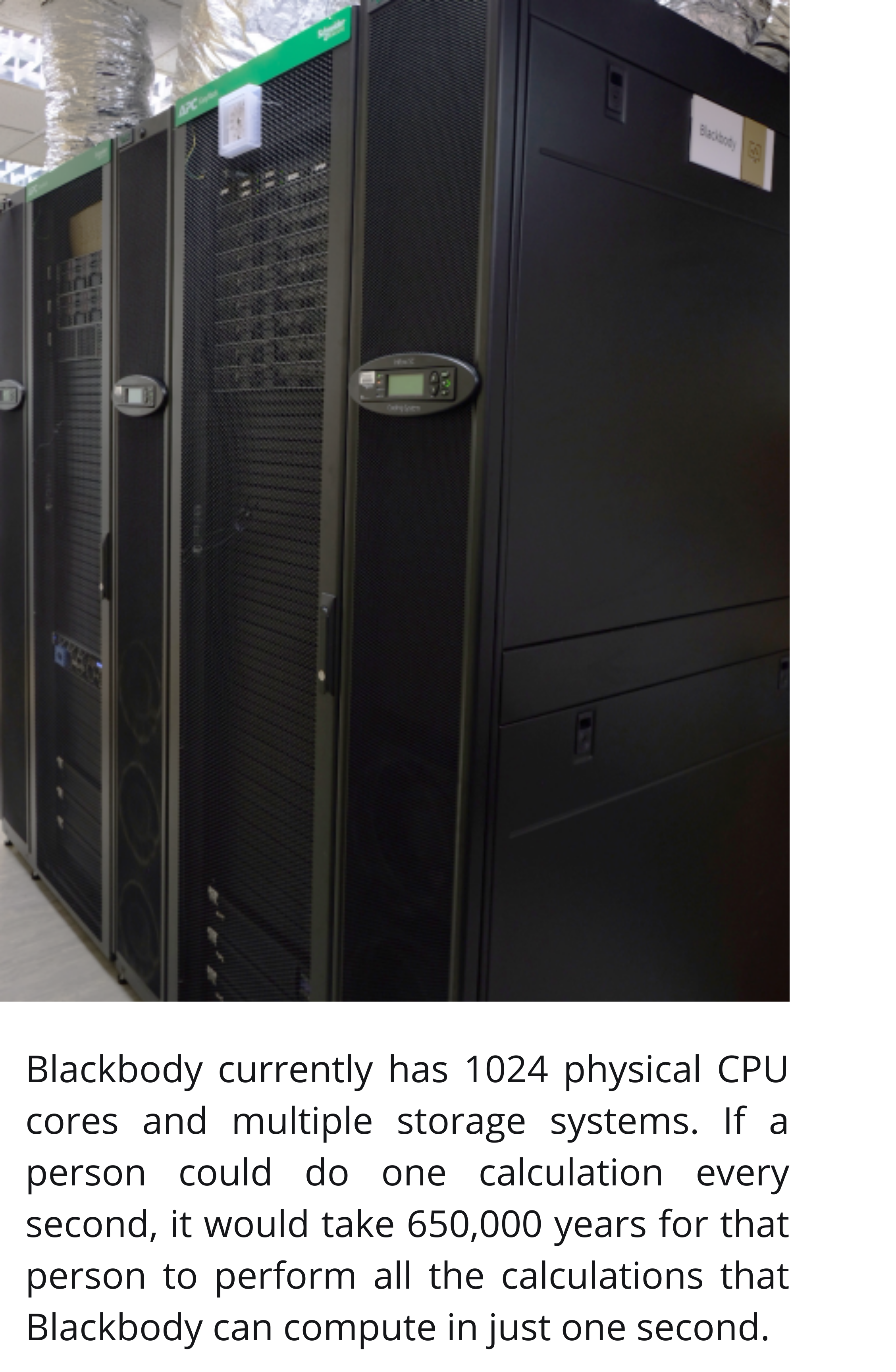

{{'Newsletter' | t}}
PhD Student Helps to Build the New Advanced Computing System ‘Blackbody’

In modern times, many groundbreaking discoveries are made in science through numerical computation, which enables scientists to capture the complex, quantum and non-linear physical interactions happening in the universe from galactic to sub-atomic scales. Therefore, scientific computation has become as equally important as traditional theoretical and experimental research, and high-performance computing (HPC) facilities have hence also become a necessity for pushing the frontiers of scientific discoveries.
To pursue advances in astronomy, quantum physics and interdisciplinary science, the research teams led by Dr Jane Dai and Dr Zi Yang Meng from the Department of Physics, HKU, have worked together to deploy a new supercomputing system at HKU, named ‘Blackbody’ supercomputer (with the name stemming from their respective research topics of ‘Black hole’ and ‘Quantum many-body physics’). The system was set up in fall 2022 and is currently in full operation.
Hongyu Lu—a PhD student in the Department of Physics who joined Dr Meng’s research team in the building the HPC facilities—said, “I feel glad to have helped the installation and management of this computing system. Previously as a user of other computing platforms, I just followed the basic rules for simulation and did not know much about the details of the systems. In the processing of building our own ‘Blackbody’, by selecting the facilities, helping the setup and managing the equipment, I learned many details of both the characteristics of super-computers and the techniques to more efficiently operate my simulations on them, which helps in my own research process.”
The launch of this new computing system provides enormous computational capabilities for the researchers to develop novel numerical codes and perform large-scale simulations, which will be used to tackle some of the most complex problems in the quantum physics and astronomy domains.
Dr Jane Dai’s research on black hole astrophysics
Dr Dai’s team has developed and employed several state-of-the-art general relativistic and Monte Carlo codes to study the physics around astrophysical black holes. They focus on understanding how materials orbit around black holes, accrete onto black holes and produce energetic outputs in this process. Their results are also relevant for the cosmological evolution of black holes and their evolution together with galaxies since the beginning of the universe. Besides theoretical explorations, the team also collaborates with world-leading astronomers to provide models and interpretations for their observations and help design next-generation telescopes at NASA.
Dr Zi Yang Meng’s research on quantum many-body physics
Dr Meng’s team develops the quantum Monte Carlo algorithm and the tensor-network approaches to identify more effective models and to solve them to reveal the fundamental mechanism of quantum many-body systems. Their research works provide the most accurate solutions and new understandings for the frontier quantum materials in which millions of electrons are strongly interacting with each other in quantum scale, which are crucial for the development of next-generation technologies in the hope of addressing new challenges in the world, such as developing new computing chips breakthrough the limit of Moore’s law and building lossless energy transmission systems using high-temperature superconductors.Blackbody is funded through the HKU Small Equipment Grant (with Co-Investigators Dr Man Hoi Lee from the Department of Earth Sciences and Dr Jun Yang from the Department of Chemistry), the National Natural Science Foundation of China’s Excellent Young Scientist Fund, the Research Grants Council’s Areas of Excellence scheme and start-up funding from the Faculty of Science.
(This article is adapted from https://www.hku.hk/press/news_detail_25594.html)

